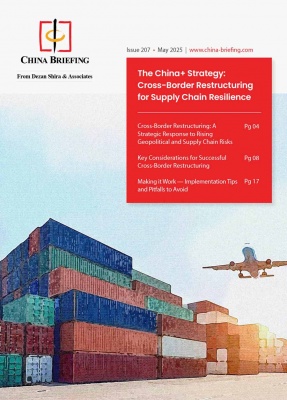Asia Transfer Pricing Brief: Q3 2023
In our first Asia Transfer Pricing Brief for Q3 2023, we provide the latest transfer pricing updates from Asia countries. Singapore proposes the implementation of the global minimum tax starting from January 1, 2025. Malaysia introduced new transfer pricing rules that will be effective for the year of assessment (YA) 2023 and onwards. India announced a landmark achievement, with the signing of 95 Advance Pricing Agreements in the fiscal year 2022-23.
Asia remains one of the world’s primary investment hubs, attracting an increasing number of businesses that have either expanded or are contemplating expansion into its high-performing emerging markets. For multinational enterprises (MNEs), transfer pricing is an important issue that demands attention sooner or later.
Transfer pricing concerns the pricing arrangements between associated enterprises (AE) operating in different tax jurisdictions for their intercompany transactions. In alignment with international regulations, Asian taxpayers engaged in transactions with other group entities must substantiate that these dealings adhere to the “arm’s length standard.” This standard necessitates taxpayers to prove that their transactions with related parties mirror those with third parties in a similar manner and under comparable conditions.
Nevertheless, the transfer pricing landscape has grown more complex in recent years and can be challenging for MNEs to navigate successfully. Apart from the international transfer pricing initiatives spearheaded by the Organization for Economic Co-operation and Development (OECD), individual governments are intensifying their own tax and regulatory frameworks overseeing transfer pricing. This heightened focus aims to protect their tax revenue amid financial constraints caused by the three-year COVID-19 pandemic and to manage domestic jurisdiction compliance in a dynamic global business environment.
In this scenario, it is crucial for foreign investors to stay on top of international and regional transfer pricing updates in order to effectively address their global transfer pricing concerns. Consequently, starting Q3 2023, our team of Dezan & Shira transfer pricing and tax professionals have taken the initiative to produce a quarterly Asia Transfer Pricing Brief. This brief will succinctly summarize timely transfer pricing news, aiming to provide you and your Asia-based business with a strategic advantage in managing international taxation issues and ensuring compliance.
In our first Asia Transfer Pricing Brief, for Q3 2023, we provide the latest transfer pricing updates from Singapore, Malaysia, and India.
Singapore
The 2023 Budget speech in Singapore proposes the implementation of the Global Anti-Base Erosion Rules (GloBE) of the OECD/BEPS Two Pillar plan, specifically under Pillar Two, starting from January 1, 2025. Under Pillar Two, if the effective tax rate of a qualified Multinational Enterprise (MNE) group falls below the global minimum tax rate of 15 percent, its parent or subsidiary companies will be required to pay a top-up tax in the jurisdictions where they are located to meet the shortfall. For Singapore, this implies that the effective tax rate of MNEs will be adjusted to 15 percent within the country.
It’s important to note that, as per the specified criteria, only MNEs with a global turnover of at least €750 million will be subject to the global minimum tax rules. Certain entities, including government entities not engaged in trade, international organizations, non-profit organizations, and pension funds, are fully excluded. Additionally, investment funds acting as ultimate parent entities of an MNE group and specific holding vehicles of the investment fund are also excluded from these rules.
The new regulation will be applicable to financial years commencing on or after January 1, 2025. However, it is highlighted that the proposed timeline may be subject to change based on the development of the OECD BEPS 2.0 framework. In the event of delays in implementing Pillar Two globally, the Singapore government will adjust its implementation timeline accordingly.
This legislative change will directly impact large MNEs operating in Singapore and the overseas subsidiaries of Singapore parent companies within large MNE groups. The 2023 Budget also emphasizes Singapore’s commitment to review and update industry development schemes to maintain competitiveness in attracting foreign investment. It assures enterprises of sufficient notice before any changes to tax schemes are implemented.
Enterprises operating in Singapore are advised to closely monitor the development of Pillar Two and assess its potential impacts on corporate financial health. Consultation with tax specialists is recommended for a comprehensive understanding of the implications and appropriate response strategies.
Malaysia
On May 29, 2023, Malaysia introduced the Income Tax (Transfer Pricing) Rules 2023 [P.U.(A) 165], slated to be effective for the year of assessment (YA) 2023 and subsequent YAs. These rules mark a significant enhancement in the administration of transfer pricing-related issues by the Malaysia Inland Revenue Board (MIRB). Key changes in Malaysia’s new transfer pricing rules are summarized as follows:
- Arm’s length range: The rules establish an arm’s length range for determining the arm’s length price in a controlled transaction. If the related party transaction falls within the arm’s length range (i.e., between the 37.5th and 62.5th percentiles of the benchmarking data set), such a price may be considered the arm’s length price. Transactions outside this range will be adjusted to the median by the relevant authorities.
- Documentation requirements: Taxpayers are mandated to specify the date of completion of contemporaneous transfer pricing documentation. This documentation must be finalized before the due date for submitting a tax return for that YA and should be provided within 14 days upon request by the MIRB. The documentation must include Schedule 1 (Multinational Enterprise Group Information), Schedule 2 (Taxpayer Business Information), and Schedule 3 (Cost Contribution Arrangement (CCA) Information and Documents).
- Intangible property (IP): The rules clarify that an owner of IP not involved in the functions or control related to the development, enhancement, maintenance, protection, and exploitation (DEMPE) of the IP is not entitled to any income attributable to the IP. The party contributing to the IP’s value through DEMPE activities is entitled to arm’s length consideration.
- Removed provisions: Certain provisions from the old 2012 transfer pricing rules have been eliminated, including the re-characterization of transactions and the provision for offsetting adjustments.
With the enactment and enforcement of these new transfer pricing rules, taxpayers are urged to assess whether their intercompany pricing aligns with the arm’s length range to preempt potential adjustments and investigations by relevant tax authorities. As the new rules necessitate more comprehensive information in transfer pricing documentation, enterprises are advised to establish internal schedules to facilitate the gathering of information at the group level.
India
In March 2023, the Central Board of Direct Taxes (CBDT) of the Government of India announced a landmark achievement, with the signing of 95 Advance Pricing Agreements (APAs) in the fiscal year 2022-23, marking a record high. This comprised 63 Unilateral APAs (UAPAs) and 32 Bilateral APAs (BAPAs), bringing the total number of APAs signed since the program’s inception to 516.
India initiated the APA program in 2012 with the primary objective of providing tax certainty to taxpayers and mitigating potential tax and transfer pricing disputes with tax authorities. The program enables Indian tax authorities to engage in APAs with taxpayers for their international transactions for a maximum period of five years, determining the arm’s length price. Rollback provisions were introduced in March 2015, allowing taxpayers to extend the agreement reached in the APA to a maximum of four years before the first year of the APA period. Consequently, the Indian APA program offers taxpayers tax and transfer pricing certainty for a maximum of nine years.
FY2022-23 witnessed the highest number of APA and BAPA signings in any financial year. This accomplishment was a result of Mutual Agreements with treaty partners such as Finland, the UK, the US, Denmark, Singapore, and Japan. Notably, on March 24, 2023, 21 APAs were signed, constituting the largest number of agreements inked in a single day.
The APA program plays a pivotal role in supporting the Government of India’s mission to facilitate ease of doing business for foreign investment, particularly benefiting multinational enterprises engaged in numerous cross-border transactions within their corporate groups.
Given the current Indian tax regime, it is advisable for relevant enterprises to conduct a comprehensive assessment of their business operations, including intercompany transactions and tax positions, to determine whether participation in the APA program aligns with their overall interests.
Dezan Shira & Associates’ transfer pricing practice specializes in assisting companies engaged in transactions with related parties to navigate transfer pricing issues. Our team of tax professionals offers comprehensive services customized to each client’s specific requirements, taking into account the distinctive nature of their business operations. Whether you require support with transfer pricing documentation, benchmark studies, tax audits, or monitoring transfer pricing policies, please reach out to us at China@dezshira.com. We are here to provide tailored solutions to address your transfer pricing needs.
About Us China Briefing is written and produced by Dezan Shira & Associates. The practice assists foreign investors into China and has done so since 1992 through offices in Beijing, Tianjin, Dalian, Qingdao, Shanghai, Hangzhou, Ningbo, Suzhou, Guangzhou, Dongguan, Zhongshan, Shenzhen, and Hong Kong. Please contact the firm for assistance in China at china@dezshira.com. Dezan Shira & Associates has offices in Vietnam, Indonesia, Singapore, United States, Germany, Italy, India, Dubai (UAE), and Russia, in addition to our trade research facilities along the Belt & Road Initiative. We also have partner firms assisting foreign investors in The Philippines, Malaysia, Thailand, Bangladesh.
- Previous Article Xi-Biden Meeting: “Productive” Talks Lead to Increased Cooperation in Key Areas
- Next Article Moving Production to Inland China – An Alternative to Reshoring




























